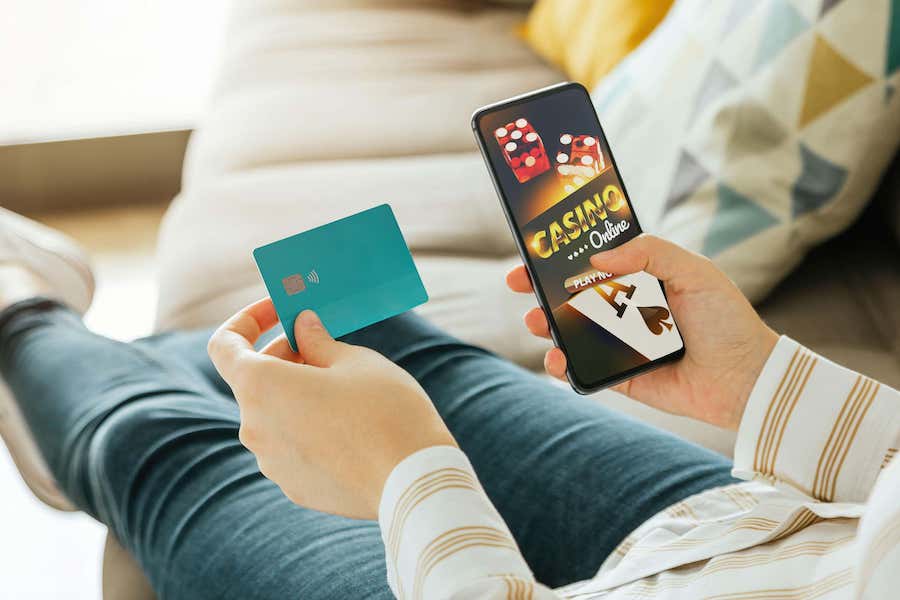The secret signs of a gambling addiction – and how to approach a loved one
It’s becoming an increasingly wide-spread issue
The number of people seeking help for gambling problems reached record levels in 2023 – with more people calling a national helpline than ever before.
The National Gambling Helpline say that 52,370 people called asking for counselling, support and further information last year – a 24% increase on the year before, when there were around 42,000.
The Christmas period saw a spike too. The helpline, run by GamCare, saw a 39% increase in calls throughout December 2023 compared to the same time the previous year.
Samantha Turton, head of remote support services at GamCare, said: “While it is concerning to see the rising numbers who need help, we are encouraged that advisers are reporting an increase in calls from people who are reaching out at an earlier stage. This is an invaluable step to prevent gambling harm from escalating further down the line.”
Our Helpline advisers are on hand 24/7, ready to listen and support you.
Whether you are directly impacted by gambling harm or as an affected other, we can help with the next steps in recovery: https://t.co/PATXEKCd9L pic.twitter.com/nERWvieUmd
— GamCare (@GamCare) January 23, 2024
Dr David McLaughlan, a priory consultant psychiatrist specialising in addictions, said gambling is a particularly challenging addiction to treat – “Because of the access to gambling platforms of peoples’ phones”.
He said: “With my patients who are addicted to alcohol, I can suggest that they avoid drinking venues, or remove alcohol from their house. However, when the temptation is constantly present, on your phone, in your pocket, it’s much harder to resist.”
There’s also an huge amount of different options for people to bet on these days, from online poker and the most obsure of sports to what the royal family might do next.
Signs to watch out for
NHS England’s mental health director, Claire Murdoch, said: “Gambling addiction is a cruel mental health condition that can ruin people’s lives.”
As with all addictions, people with gambling problems can become consumed mentally and physically with their habit.

“People with problematic gambling are often quite secretive and harbour a lot of guilt and shame. They might appear moody, irritable or unpredictable in their moods,” said McLaughlan, who is also the co-founder of Curb, an addictive behaviour change app.
“Some of the telltale signs might include making excuses to explain where money has been spent or asking to borrow money to cover debts and fund further gambling.
They might appear preoccupied with gambling and experience a loss of interest in other activities which they previously enjoyed doing, he added. “Often they can be quite depressed and have low self-esteem. There may also be parallel addictions, such as alcohol or cocaine.”
How to approach a loved one
Sometimes family members or partners can be in denial about the person’s problems too, or even enable their addiction unknowingly. But if you are worried about a loved one, try to approach them with kindness and compassion.
“Firstly, acknowledge your own feelings. You might be feeling angry, upset, betrayed and even frightened. It’s okay to have these feelings,” said McLaughlan.
“However, when you approach your loved one, try to talk to them in a non-judgmental way. Create a safe space for them to be open with you. Show them that you care and that you want to help.”
View this post on Instagram
Treatments and support
The key thing to know is recovery is possible.
The best treatments should help the addict understand why their gambling started, learn practical steps to stay away from problematic behaviours and help them build a healthier life.
“Many of us at the Priory have experience in treating gambling addiction. There’s a variety of talking therapies and even pharmacological approaches to treat underlying issues such as depression, anxiety and ADHD,” said McLaughlan.
“There are some fantastic NHS services too, but they’re often overstretched, however, it is still worth speaking to your GP and seeing what support is available.
“GamCare is a great charity with some practical tools to restrict access to gambling websites and platforms as mentioned above.
He added: “They have a tool called GamBan which blocks your device from accessing gambling websites and platforms. GamStop is another tool which allows you to register and self-exclude from all UK gambling apps and websites for free.”
The Press Association
Latest posts by The Press Association (see all)
- Princess Charlotte ‘s ninth birthday marked by picture release - May 2, 2024
- Strong passwords more important than ever, experts warn - May 2, 2024
- Princess Charlotte set to celebrate ninth birthday - May 1, 2024
- How edible flowers can make your dishes look and taste divine - April 30, 2024
- Beauty entrepreneur Liz Earle on turning 60: Ageing is a gift - April 30, 2024




















